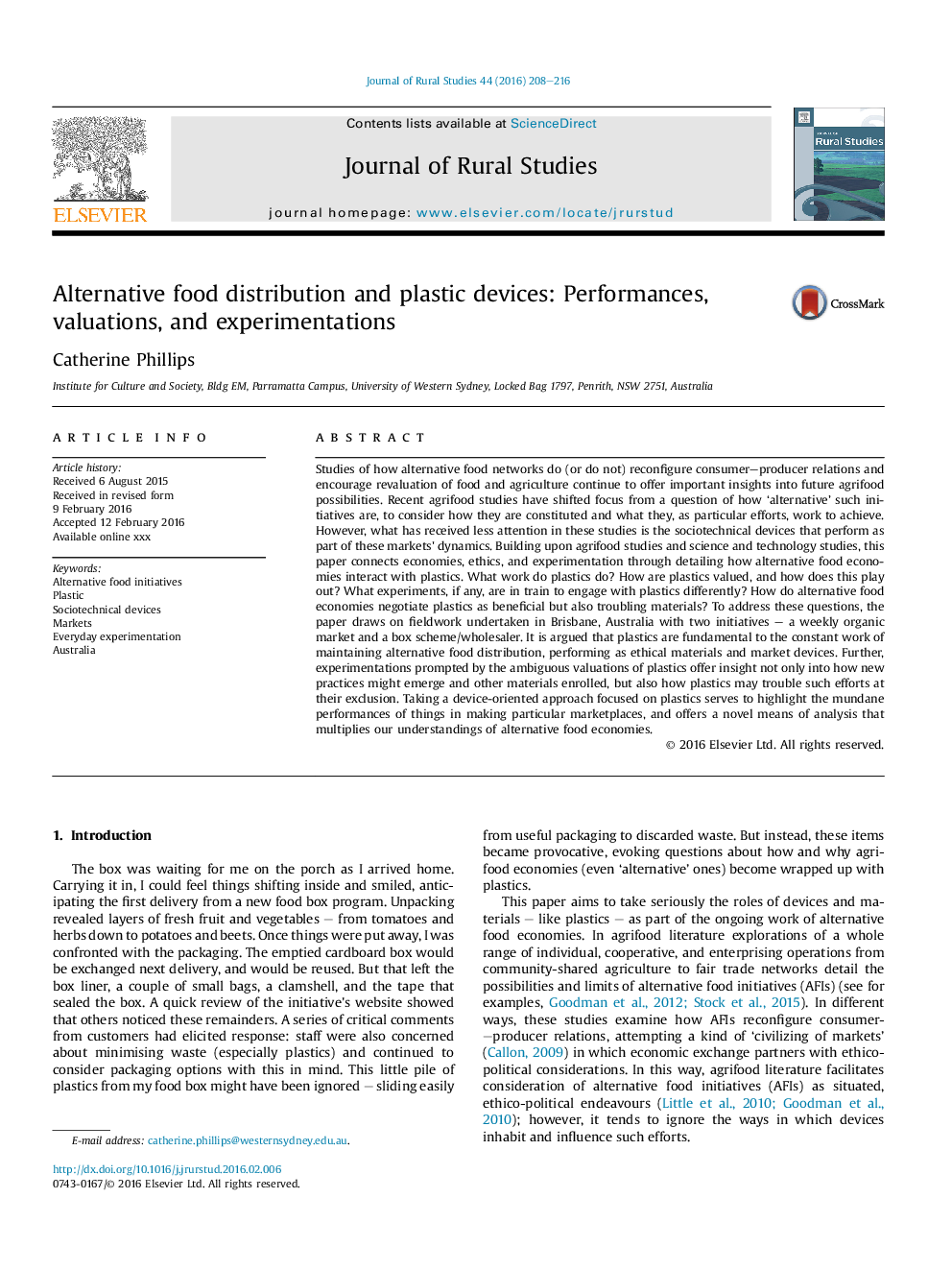| Article ID | Journal | Published Year | Pages | File Type |
|---|---|---|---|---|
| 6545475 | Journal of Rural Studies | 2016 | 9 Pages |
Abstract
Studies of how alternative food networks do (or do not) reconfigure consumer-producer relations and encourage revaluation of food and agriculture continue to offer important insights into future agrifood possibilities. Recent agrifood studies have shifted focus from a question of how 'alternative' such initiatives are, to consider how they are constituted and what they, as particular efforts, work to achieve. However, what has received less attention in these studies is the sociotechnical devices that perform as part of these markets' dynamics. Building upon agrifood studies and science and technology studies, this paper connects economies, ethics, and experimentation through detailing how alternative food economies interact with plastics. What work do plastics do? How are plastics valued, and how does this play out? What experiments, if any, are in train to engage with plastics differently? How do alternative food economies negotiate plastics as beneficial but also troubling materials? To address these questions, the paper draws on fieldwork undertaken in Brisbane, Australia with two initiatives - a weekly organic market and a box scheme/wholesaler. It is argued that plastics are fundamental to the constant work of maintaining alternative food distribution, performing as ethical materials and market devices. Further, experimentations prompted by the ambiguous valuations of plastics offer insight not only into how new practices might emerge and other materials enrolled, but also how plastics may trouble such efforts at their exclusion. Taking a device-oriented approach focused on plastics serves to highlight the mundane performances of things in making particular marketplaces, and offers a novel means of analysis that multiplies our understandings of alternative food economies.
Related Topics
Life Sciences
Agricultural and Biological Sciences
Forestry
Authors
Catherine Phillips,
